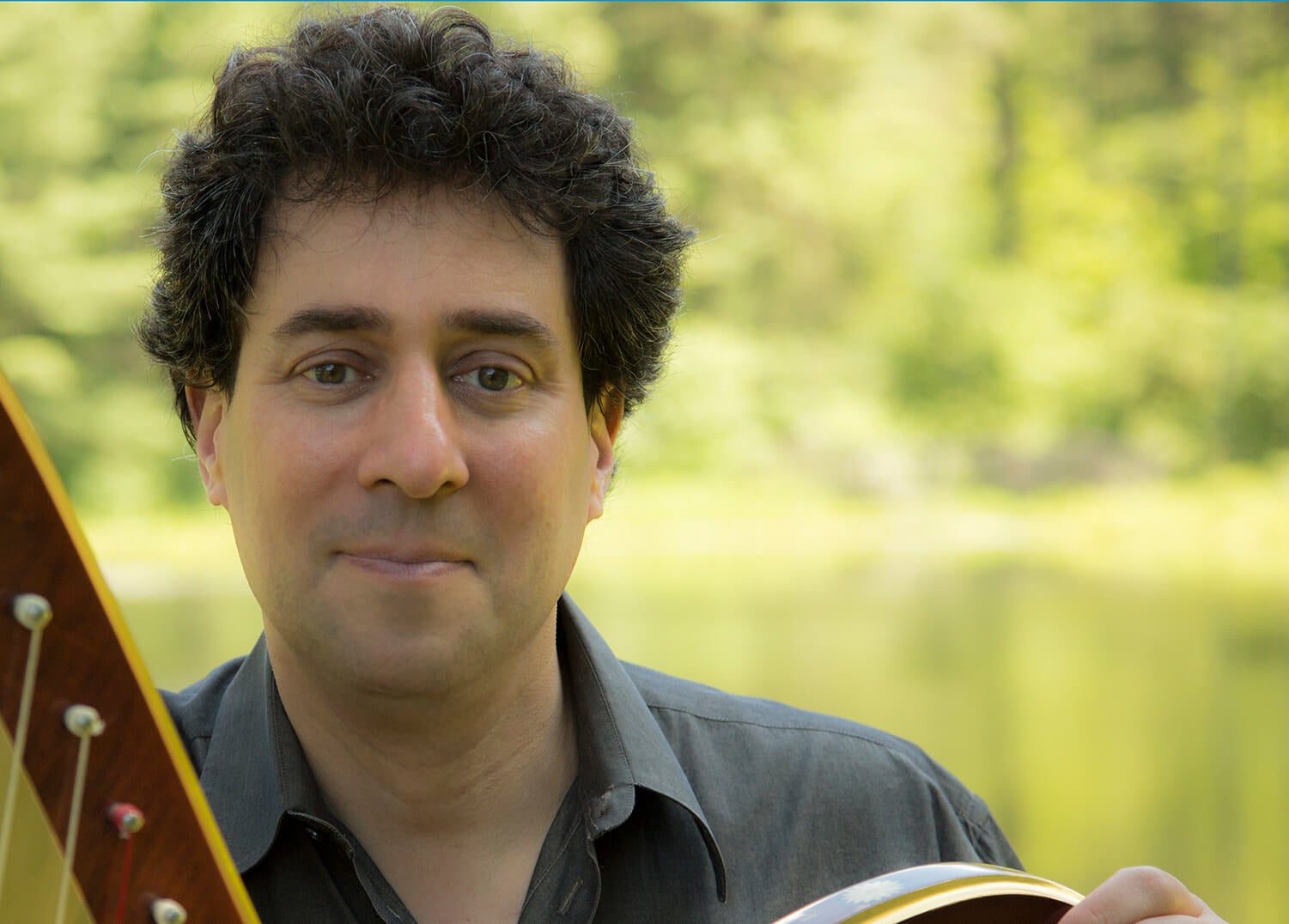
An Evening of Music by David S. Lefkowitz
Thursday, February 15, 7:00 p.m.
Sinai Temple
Performers
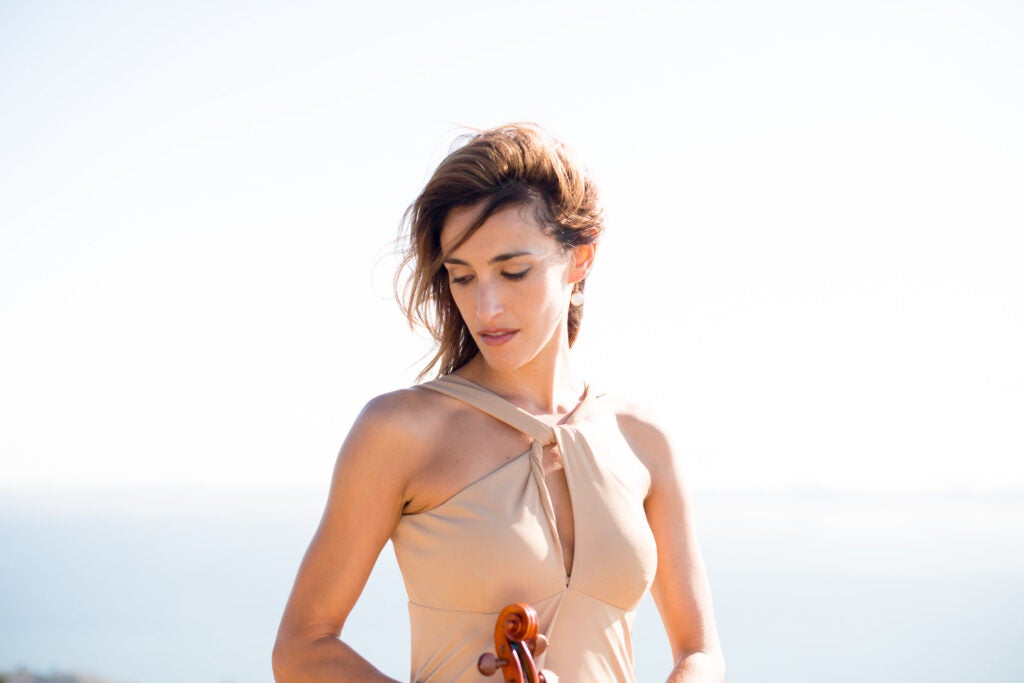
Heather Powell
See Bio
Heather Powell appears in performance with a diverse group of ensembles as orchestral violinist, chamber musician and soloist alike. She plays regularly for the Los Angeles Opera, the Pacific Symphony and is an active recording artist for motion pictures and television. Before relocating to LA, the San Francisco native performed with the San Francisco Ballet, the San Francisco Opera, as Assistant Concertmaster of the Santa Rosa Symphony, Concertmaster of the Merced Symphony, and Associate Concertmaster of the Stockton Symphony. Heather has made TV appearances on Little Big Shots, Best.Cover.Ever, The Voice and World’s Best. She has received awards for her musical achievements from the Harvard Musical Association, the National Foundation for Advancement in the Arts and at the Fischoff National Chamber Music Competition.
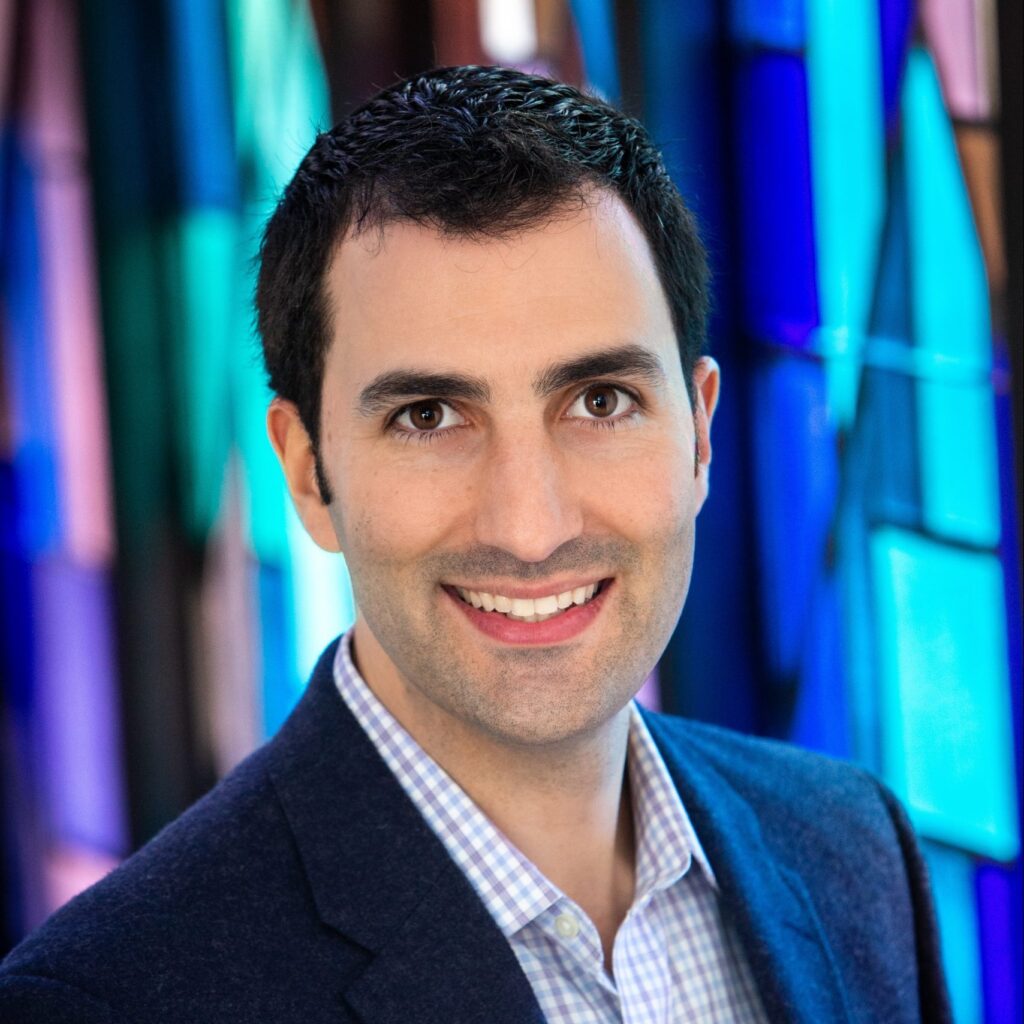
Marcus Feldman
See Bio
Named one of The Top Five Best New Voices in Jewish Music by The Forward, Marcus Feldman is the Senior Cantor of Sinai Temple. His voice has been heard at Dodger Stadium, The Getty Center and all over the world via his YouTube channel. Trained in opera as a tenor, Cantor Feldman graduated from the University of Southern California as a Renaissance Scholar in 2007. Ordained as a cantor in 2011 at the Academy for Jewish Religion, California, Cantor Feldman holds a Master of Jewish Sacred Music degree from the same institution, where he serves as a Professor of Cantorial & Liturgical Studies. During his Cantorial studies, Cantor Feldman spent a semester in Jerusalem, Israel, studying Hazzanut with the renowned Cantor Naftali Herstik. Upon graduation, Cantor Feldman served as the Second Cantor of Stephen Wise Temple from 2011-2012, working alongside his mentor, Cantor Nathan Lam. In 2012, Cantor Feldman was appointed Senior Cantor of Sinai Temple, where he serves alongside the influential, prolific, and internationally recognized Rabbi David Wolpe. At Sinai Temple, Cantor Feldman oversees the B’nai Mitzvah program and the entire music department. He has produced numerous musical programs, lectures, and concerts. In 2017, he produced a professional album showcasing the multi-faceted music of Sinai Temple. Cantor Feldman instils the love of Jewish music within the next generation through the Sinai Temple Youth Choir, a group of students from Sinai Akiba Academy and Sinai Temple Religious School, who share their voices on Shabbat mornings and during the High Holy Days.
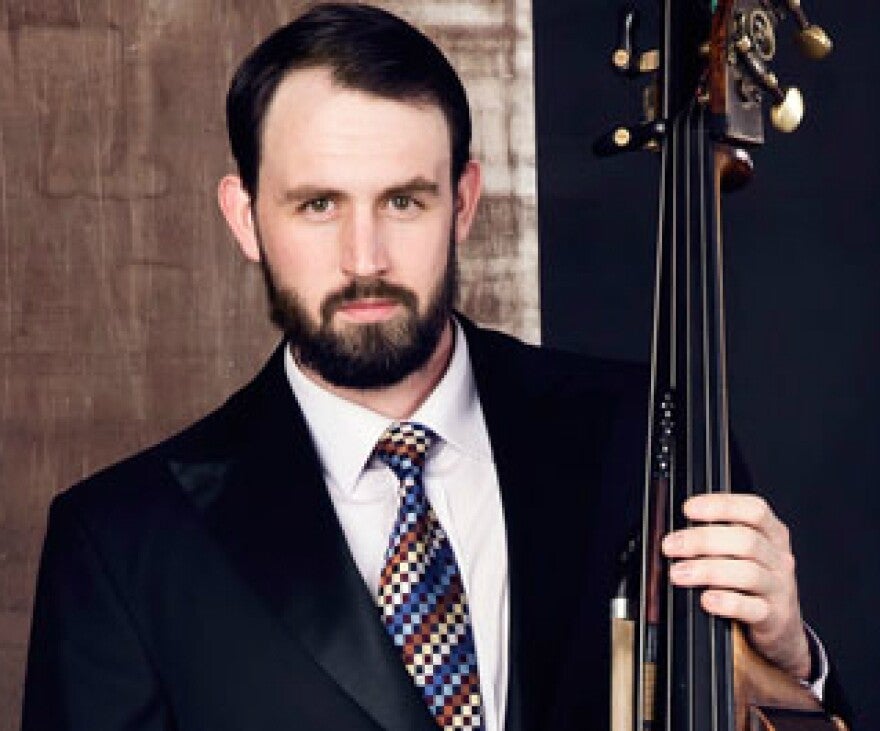
Nathan Farrington
See Bio
Double bass Nathan Farrington (’06) has been the principal bassist for LA Opera since 2016. He regularly appears in the bass sections of many of America’s top orchestras including the Los Angeles Philharmonic, the Philadelphia Orchestra, the Chicago Symphony, the New York Philharmonic, the Cleveland Orchestra, the East Coast Chamber Orchestra, and the Seattle Symphony. He also pursues chamber music and solo opportunities avidly. He has appeared at the Marlboro Music Festival, the Aspen Music Festival, the Olympic Music Festival, ChamberFest Cleveland, and at the Da Camera Society. Nathan also loves to travel with his trusty guitar, and often sings and plays operatic arias and folk songs alongside his bass playing.
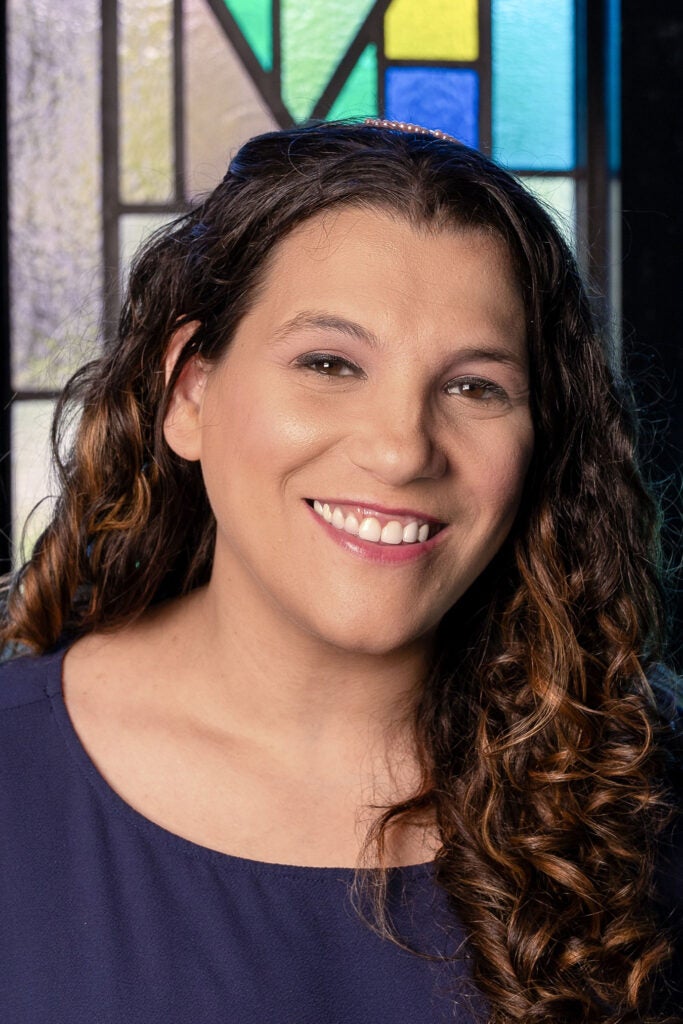
Orly Campbell
See Bio
Cantor Orly Campbell joined the clergy team at Sinai Temple this past July, after serving as Cantor at Temple Beth David for the past three years. She was ordained as a Cantor in 2019, from The Academy for Jewish Religion (California) where she also received a master’s degree in Jewish Sacred Music. She is a classically trained opera singer (“coloratura”) who fuses classic Hazzanut with other genres like Broadway and Jazz. You may have seen Orly singing at temples such as Valley Beth Shalom, Temple Ramat Zion, Stephen Wise, Beth Shir Shalom, Temple Judea, Temple Akiba, Temple Beth David, and Desert Outreach Synagogue. She loves sharing her love of Hazzanut, being Jewish and the music with everyone around her. “As a Cantor, my hope is to teach, guide, and inspire with the power of music and prayer. I hope to elevate the spiritual experience at services and life cycle events, leading everyday with my heart, head and most importantly, my soul.”
Being a Cantor wasn’t something that Orly knew would become her future. She had dreams of being on Broadway. But sometimes things truly happen for a reason, and Orly was meant to go on this journey of becoming a Cantor. Besides her love of being a Cantor and serving her wonderful community at Sinai Temple, Orly is proud of her other role, being a mom to her 4 children: Joshua, Emma, Benjamin, and Madeline.
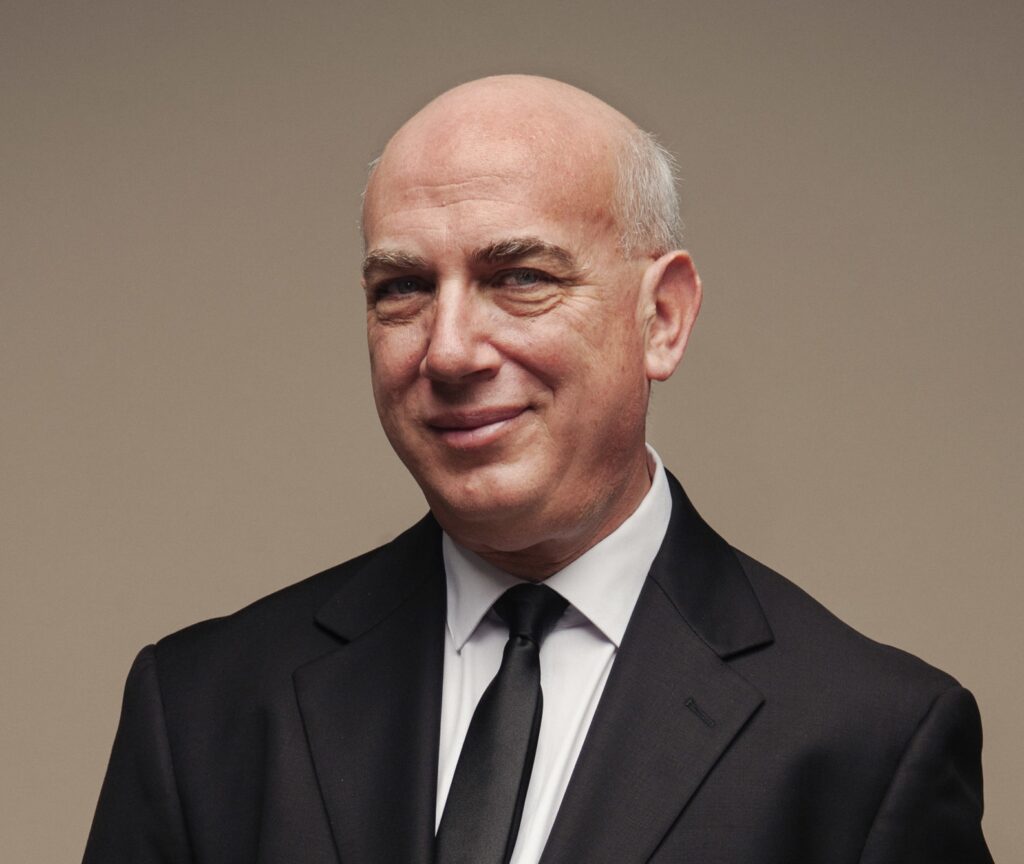
Rafael Rishik
See Bio
Violinist Rafael Rishik was born in New York City and started the violin at age 4. At age six he was one of the youngest students ever accepted to the Juilliard School of Music. During the next 12 years of study in New York, Mr. Rishik also attended the famed Fiorello H. LaGuardia High School of Music & Art. Upon graduation he continued his studies at Indiana University at Bloomington, completing his graduate studies at U.C. Santa Barbara as the first violinist of the Graduate String Quartet-in-Residence. While at U.C.-Santa Barbara, Mr. Rishik had the rare privilege of performing the Chausson Poeme in master class for the great Yehudi Menuhin. Mr. Rishik’s principal teachers have been Stuart Canin, Ramy Shevelov, Zinaida Gilels, Christine Dethier and Sally Thomas.
“Compelling Artistry…” is how the Jerusalem Post described Mr. Rishik’s violin playing. He has participated in numerous festivals, including the Israel Chamber Music Festival, Carmel Bach Festival, Spoleto Festival of Two Worlds, The Music Academy of the West and most recently The International Chamber Orchestra of Puerto Rico. Chamber Music has always been a big part of Mr. Rishik’s musical life. He spent several years performing with the Camerata Pacifica, and is a founding member of the New Hollywood String Quartet. In the summer of 2019 the NHSQ, Quartet in Residence at the Restoration Concert Series launched their inaugural summer festival entitled “Summer of Brahms Chamber Music Festival”. To incredible critical acclaim and capacity audiences the NHSQ presented all twenty-five of the instrumental chamber works of Johannes Brahms in collaboration with some of the world’s most renowned chamber musicians. In December of 2021 the NHSQ presented the Vienna Holiday Concerts at Rothenberg Hall at the Huntington Library. The works of Mozart and Schubert were celebrated over a series of three consecutive concerts. Josef Woodward of the San Francisco Classical Voice wrote: ”At the Huntington, the group exuded a refined and luminous ensemble presence in keeping with its growing reputation, 20 years into its history”.
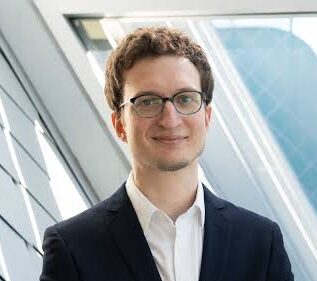
Rodolfo Leone
See Bio
The brilliant Italian-born pianist Rodolfo Leone was the first-prize winner of the 2017 International Beethoven Piano Competition Vienna. Described as “a true sound philosopher” (Oberösterreichische Nachrichten), Rodolfo released his debut album on the Austrian label Gramola in May 2018. The all-Beethoven disc features two pillars of the piano repertoire: the “Hammerklavier” Sonata and the “Waldstein” Sonata. His playing has been described as having “impeccable style” and “absolute technical control.” (Il Nuovo Amico).
Rodolfo’s 2018-19 season included debuts with the San Diego Symphony (Liszt’s Piano Concerto No. 1) and the Pasadena Symphony (Mozart’s Piano Concerto No. 21). He also performed Beethoven’s Triple Concerto in Walt Disney Concert Hall with the Colburn Orchestra. In May 2019, he gave a recital tour in Austria, culminating in a performance in Vienna at the Brahms-Saal of the Musikverein. He also performed recitals in Los Angeles and Naples, Florida, and appeared on the chamber music series Le Salon de Musiques in Los Angeles. As a 2018–19 Performance Today Young Artist in Residence, Rodolfo’s live recordings were broadcast nationally throughout the United States
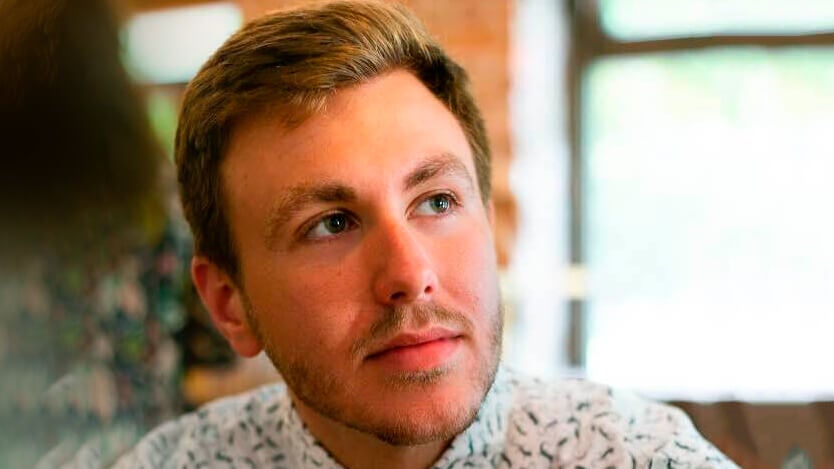
Troy Robertson
See Bio
With a Music Education degree from Missouri State University, a Vocal Performance degree from UCLA, and pursuit of a doctorate in Choral Conducting at UCLA, Troy Robertson is a highly sought-after and versatile performer, conductor, and educator. His featured performances at UCLA include Figaro in Le nozze di Figaro, Nick Shadow in The Rake’s Progress, Sy in Kay Rhie’s Quake, and Mr. Lucian in Richard Danielpour’s The Grand Hotel Tartarus. Additionally, he has enjoyed professional choral opportunities singing with groups like Seraphic Fire, the Ireland Chamber Orchestra, and the Palisades Symphony. Currently, he works with the Grammy-award-winning UCLA Chamber Singers who are preparing the West Coast premiere of William Averitt’s Easter, 1906. In his free time, Troy is a dutiful husband, cat father, and soon-to-be human father.
Repertoire
All Music by David S. Lefkowitz
A New Song (1993)
Prayer Before Sleep (2012)
L'Dor Vador (2005)
Cantor Marcus Feldman, Tenor Soloist
Cantor Orly Campbell, Soprano Soloist
Sinai Temple Choir - Benjamin Fingerhut, piano & director
Tipot (2023)
world premiere
Gabrielle Sipen, piano
Prelude & Fugue No.12: Nigun, Hora & Freylekh (2022)
(from: Parallel Universes: Preludes and Fugues Book II)
concert premiere
David Kaplan, piano
Cantor Marcus Feldman, tenor
Garland of Glory (1991)
concert premiere
Cantor Marcus Feldman, tenor
Yoni Fogelman & Yekaterina Lynch, handclaps
Benjamin Fingerhut & Gabrielle Sipen, organ
David S. Lefkowitz, Conductor
Dreams: All of a Peace (2007)
i. War and Passion
ii. Love and Peace
iii. Peace and Hope
Rafael Rishik & Heather Powell, violin
Alma Fernandez, viola
Ben Lash, violoncello
Rodolfo Leone, piano
Psalm 93 (1990)
UCLA Chamber Singers - Troy Robertson, conductor
James Lent, piano
Nishmat Kol Chai (2022)
UCLA Chamber Singers, James Scott, conductor
Rafael Rishik & Heather Powell, violin, Alma Fernandez, viola,
Ben Lash, violoncello, Nathan Farrington, bass, James Lent, piano
Jerusalem Hallelujah (2017)
Cantor Marcus Feldman, tenor
Rachel Hahn, soprano
UCLA Chamber Singers - Kevin Cornwell II, conductor
James Lent, piano
Program Notes
Program notes by David S. Lefkowitz
What is Jewish Music? I have returned to this question over and over in my career as a composer. The narrowest answer is “music written by Jews, for Jews, for Jewish (liturgical) purposes.” Two less narrow answers: “music written by Jews, for Jews,” or “music written by Jews, with Jewish material and/or themes.” The widest answers are “music written by Jews,” or music written (by any composer) using Jewish material and/or themes. Seven of the pieces tonight fall into the first category. The three largely-instrumental compositions in the middle of the program fall into the second or third category, including a “klezmer” prelude and fugue for piano (with added voice). But I continue to wonder about the fourth and fifth categories: what about the rest of the 26 Preludes and Fugues that I composed, from which this particular klezmer one was drawn? Or what about Franz Schubert’s setting of Psalm 92, written in Hebrew and commissioned by Cantor (and professor of composition) Solomon Sulzer? I can’t resolve this question, but I hope that this concert enriches your idea of what “Jewish music” can mean.
A New Song (1993)
Prayer Before Sleep (2012)
L'Dor Vador (2005)
The first three pieces on the program were written as new liturgical pieces. The text of A New Song is a compilation of different Psalms, including Psalms 96, 97, and 98. There are many Prayers Before Sleep in Jewish tradition; the text used here is one of the more beautiful; the music was commissioned by the Glory Star Children’s Chorus. L’Dor Vador (“From Generation to Generation”) is part of the Sabbath Amidah (the “Standing Prayer”), and was commissioned by the Cantors Assembly for Shabbat Yachad.
A New Song
Sing a new song to the Lord!
Sing to the Lord a new song!
Break forth, sing aloud, and shout praise!
Let the earth ring out in song to God.
Sing all the earth to the Lord!
Sing to the Lord, all the earth!
Break forth, sing aloud, and shout praise!
Let the heavens be glad and the earth rejoice.
Let the sea roar and all that fills it.
Let the field exult and all the creatures.
Let the trees of the forest sing for joy.
Sing a new song to the Lord!
Sing to the Lord a new song!
Break forth, sing aloud, and shout praise!
Prayer Before Sleep
Praised are You, Lord our God, King of the universe
who brings sleep to my eyes, and slumber to my eyelids.
May it be Your will that I lie down in peace and that I arise in peace.
Let my sleep be undisturbed by troubling thoughts, bad dreams, and wicked schemes.
May I have a night of tranquil slumber.
May I awaken to the light of a new day, and that my eyes may behold the splendor of Your light. Praised are You, Lord, whose glory gives light to the entire world.
Help us, our Father, to lie down in peace; and awaken us to life again, our King.
Spread over us Your shelter of peace.
L’dor Vador
L’dor vador nagid godlecha, ul’naytzach n’tzachim k’dushatcha nakdish.
V’shivchacha eloheinu mipinu lo yamush l’olam vaed,
ki el-melech gadol v’kadosh atah.
Baruch atah adonai (baruch hu u’varuch sh’mo) hael hakadosh. Amen.
(From generation to generation we will declare Your greatness, and to all eternity proclaim
Your holiness. And our praises of you, our God, will never cease to the end of time,
for you are a great and holy God and King.
Blessed are you, O Lord [blessed be He and blessed be His name], the holy God. Amen.)
Tipot (2023)
Tipot, the fourth piece on the program, was written in November, 2023, as a response to the horrific events of October 7. “Tipot,” Hebrew for “drops,” consists of ever descending series of notes, depicting drops of rain, tears, or perhaps blood. Gradually those descending lines coalesce into more-familiar musical lines, representing an old (but perhaps shattered) ideal, or hope for a peaceful future. This is the world premiere.
Prelude & Fugue No.12: Nigun, Hora & Freylekh (2022)
(from: Parallel Universes: Preludes and Fugues Book II)
Between 2020 and 2022 I wrote two sets of 13 preludes and fugues, in the tradition of J.S. Bach and Dmitri Shostakovich, each exploring a different ‘mode’ or scale. Prelude and Fugue No. 12 from Book II uses a particular pair of Klezmer modes: the Magen Avot, and the Ukrainian Dorian (or Mi Shebeirach). A newly-composed nigun (an often-repetitious liturgical warm-up tune, typically sung to syllables such as “bim-bam,” “oy-yoy-yoy,” or “aye-yay-yay”), serves as an introduction —the prelude. A pair of dances follows: a Hora and a Freylekh. A traditional Hora (literally “dance”) is in a three-beat meter, often with the first beat slightly stretched, and typically leads to a more upbeat two-beat meter dance, such as a “Bulgar,” or (as it does here), a “Freylekh” (“merry tune”). Freylekhs often start slow and speed up to the end, and this one is no different. Since both the Hora and the Freylekh tunes are treated fugally, this produces a type of double fugue. These pieces were inspired in part by The Cantor (also called The Rabbi with the Red Beard) and The Marriage, The Bedeken (also called Klezmer in Town) by the Ukrainian-born Parisian artist Emmanuel Mané-Katz (1894-1962).
Garland of Glory (1991)
Garland of Glory draws its text from the Sabbath Afternoon prayers, and praises the Sabbath rest—albeit exuberantly. It alternates between Hebrew and English. This performance will be the first time this piece has been heard in nearly 33 years.
Garland of Glory
Atah echad v’shimcha echad
You are One, and Your name is One, and there is none like Your people Israel,
a people unique on the earth.
A garland of glory have You given us, a crown of salvation: a day of rest and holiness.
Abraham rejoiced in it, Yitzchak y’ranen, Ya’akov uvanav yanuchubo.
Avraham yagel, Isaac sang, Jacob and his children were refreshed by its rest.
In this rest are love and sharing, truth and faithfulness and peace, quiet and safety.
In this rest is the perfection that you have willed.
Dreams: All of a Peace (2007)
i. War and Passion
ii. Love and Peace
iii. Peace and Hope
Dreams: All of a Peace is not all about peace, but in its progression from the first movement (War and Passion) through the second (Love and Peace) to the last movement (Peace and Hope), it is a prayer—a hope—for peace. It is based upon several different pre-existing melodies, most of which are Jewish tunes from the Sephardic (Spanish) tradition, some more than five centuries old.
War and Passion incorporates “Lavava y Suspirava” (“Washing and Sighing”), which tells of a young woman who falls in love with a knight who has just returned from war, and “De las Mares Altas” (“From the High Seas”), which tells of the love a king has for a beautiful young woman who has come from across the sea, and of the queen’s jealousy towards her. Both melodies make use of a distinctive Middle-Eastern/Jewish mode.
Love and Peace starts with “Una Noche al Lunar” (“One Moonlit Night”), a love song which is melodically simple, but metrically intricate and unpredictable. The resulting dance-like feel is continued in the next tune, a setting of a well-known Medieval liturgical poem “Shalom Aleichem” (“Peace be upon you, ministering angels”). All my life I have known one particular setting of this text, used by the Ashkenazi (Eastern European) community in the United States, so coming upon the Sephardic setting, with its metric vitality and energy, was a pleasant surprise.
Last, I could not reference “Shalom Aleichem” without using the Ashkenazi tune as well, so Peace and Hope is based upon it entirely. This setting progresses from anxiety and passion at the outset, to a welcoming and acceptance of peace at the end. Along the way it quotes two other tunes: a short reference to the melody “Elijah the Prophet” (which reflects the Jewish hope for ultimate peace at the end of time), and a more veiled reference to a melody from Bach’s Well-Tempered Clavier. The piece ends with long, descending scales taking the music down into peaceful eternity.
Psalm 93 (1990)
Psalm 93 was the first Jewish-themed piece I wrote, and was awarded the first ever Guild of Temple Musicians Young Composers Competition in 1990/1991 (a competition I have since judged many times). It has become one of my most performed compositions. Above a minimalist piano accompaniment the choir sings an exuberant setting of the text of Psalm 93.
Psalm 93
The LORD is king, He is robed in grandeur;
the LORD is robed, He is girded with strength.
The world stands firm; it cannot be shaken.
Your throne stands firm from of old; from eternity You have existed.
The ocean sounds, O LORD, the ocean sounds its thunder, the ocean sounds its pounding.
Above the thunder of the mighty waters, more majestic than the breakers of the sea is the LORD, majestic on high.
Your decrees are indeed enduring;
holiness befits Your house, O LORD, for all times.
Nishmat Kol Chai (2022) & Jerusalem Hallelujah
Nishmat Kol Chai and Jerusalem Hallelujah were both originally part of different productions of the Helfman Group—Jewish composers brought together by Cantor Phil Baron of Valley Beth Shalom. Nishmat Kol Chai was from “Amazed. Heschel’s Sabbath.” Bookended with narrated excerpts from Abraham Joshua Heschel’s seminal book, the middle is a setting of two lines from Sabbath morning prayers: “The soul of all that lives praises Your name, Lord our God; the spirit of all flesh exalts You, our sovereign, always.” In it, different downward and upward moving lines weave together to evoke all that lives praising God. Quasi-fugal melodies overlay those lines to represent mankind’s contribution to this upwelling of praise.
Nishmat Kol Chai
Nish-mat kol chai t’vareich et shimcha, Adonai eloheinu.
V’ruach kol basar t’faer utromem zich’r’cha malkeinu tamid.
(The soul of all that lives praises Your name, ADONAI our God;
the spirit of all flesh exalts You, our sovereign, always.)
Jerusalem Hallelujah was the final number of “David’s Quilt,” a musical retelling of the story of Kind David. The texts, drawn from Psalms 122 and 147, praise God and Jerusalem, the city that King David’s dynasty would build and that would be his lasting legacy. Meant as a joyous celebration, I hope it serves as a fitting end to this concert.
Jerusalem Hallelujah
Hallelujah!
It is good to sing to our God, it is pleasant to sing glorious praise.
The Lord rebuilds Jerusalem, He gathers in Israel's strays.
He heals their broken hearts, He binds their wounds and instructs in His ways.
Hallelujah!
I rejoiced when they said to me, “Let us go to the House of the Lord.”
Our feet stood firm inside your gates, O Jerusalem,
Jerusalem is built up, as a city united together.
A city to which tribes would make pilgrimage,
the tribes of the Lord to give thanks to the name of the Lord;
Sing to the Lord with thanks,
Sing a hymn with a harp to God's reign,
Who covers the heavens with clouds,
And makes the fields bring forth grain,
Who makes mountains grow grass,
For the earth He provides the rain.
Pray for the peace of Jerusalem;
“May those who love you be at peace in Jerusalem.
May there be peace within your walls, peace in your citadels.”
I pray for peace; for the sake of the house of the Lord;
Hallelujah!
O Jerusalem, glorify the Lord; O Zion praise your God with song!
For He blessed your children in your midst, and made the bars of your gates strong!
It is good to praise our God; it is pleasant to sing loud and long.
Hallelujah!